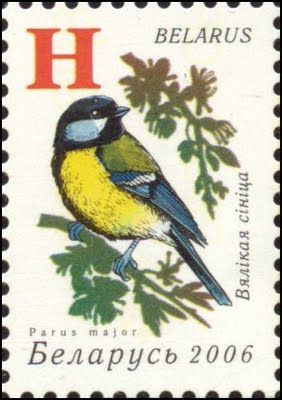The disease was first found in south-east England in 2006, but has spread rapidly around the country. It causes large growths on birds' beaks and eyes. A new study shows the strain originated in Scandinavia or Central Europe and was probably carried across the Channel by biting insects, such as mosquitoes. The findings have been published in three papers in the journal Plos One. "The lesions can be very severe," said Dr Becki Lawson, a veterinarian from the Zoological Society of London (ZSL). "There is a very significant adverse impact on the individual bird's survival." The virus is a form of avian pox, which is a skin disease. Avian pox usually infects birds such as house sparrows, dunnocks and starlings. But genetic analysis revealed that the strain hitting great tits in the UK is a different form of the virus, which originated in Europe. Although the disease can pass from bird to bird, scientists do not think that great tits carried it into the country because the birds do not migrate across the English Channel. Dr Lawson said: "It is more likely to be an insect vector, such as a mosquito, either moved by man or by wind-borne spread."
The study charted the movement of the disease across the country. Since it arrived, it has spread across central England, Wales and some cases are suspected in Scotland. A bird-monitoring study that has been running for more than 50 years in Wytham Woods in Oxfordshire also helped to shed light on the emerging disease. Researchers from the University of Oxford found that a range of tit species can catch the virus, but great tits (Parus major) were the most susceptible. The public are advised to regularly wash their feeders to stop the virus spreading "Our results show that this new strain... significantly reduces the survival of wild great tits and has particularly large effects on the survival of juvenile birds," said Dr Shelly Lachish, from the Edward Grey Institute at the University of Oxford.
Source: BBC News, 22 November 2012
http://www.bbc.co.uk/news/science-environment-20425314

- Login om te reageren
